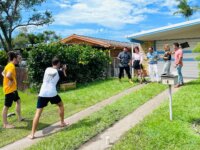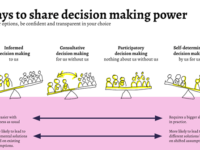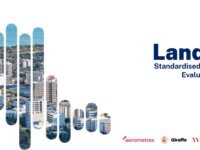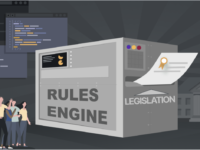The NSW Government has developed a whole of government spatial tool to improve planning and pre-development processes. The tool modernises the traditional approach to strategic planning, site assessment & land use evaluation and provides user friendly access to GIS capabilities where multiple agencies can work together on a project in NSW public sector. Through this, government agencies are enabled to make faster, better informed, more transparent and consistent decisions on NSW land.
Case Study Library
Where innovations are collected and shared to disseminate and replicate good ideas

Innovations:
0
This website, as well as any data and map included herein, are without prejudice to the status of or sovereignty over any territory, to the delimitation of international frontiers and boundaries and to the name of any territory, city or area.
AFSA regulates the bankruptcy system in Australia. The system is designed to support those in vulnerable situations due to circumstances beyond their control. However, there are bad actors who exploit the system by hiding assets/income. Using our risk-based regulatory approach, we have designed a system that uses an applicant's data and validates it against external data sets to detect potential misconduct. We aspire to build a data model to predict non-compliance at the system entry point.
Trend Atlas is a digital, interactive platform with rich insights on local and global trends and emerging signals to inform strategic planning, policy development and service redesign. It reduces research time, rework and duplication by breaking down information silos with centralised data and evidence. Built by policy people who upskilled in digital, it combines automation and curation with a sustainable contributor model to create a collaborative and trusted strategic intelligence service.
In response to the Australian Government’s National Blockchain Roadmap the Blockchain Excise Platform digitises and tracks a taxable commodity (in this case pure litres of alcohol). It connects producers and regulator with real-time access to new data, generating productivity benefits and reducing illicit activity. A first of its kind blockchain ecosystem connecting the regulator to industry to more effectively control the movement, transfer and payment of liabilities for an excise commodity.
In 2021, SIRA clawed back $91 million in excess insurer profit earned on the sale of compulsory motor accidents insurance and returned it to NSW drivers. This move was made possible after the 2017 reforms introduced a transitional excess profits and losses (TEPL) mechanism that was designed to eliminate insurer ‘super profits’ of the past. To our knowledge, the activation of this mechanism to claw back excess insurer profit and return it to the people was a world first.
Case Study
Renovate or Rebuild: Using television to support the transition to sustainable housing in Australia

Renovate or Rebuild was a collaborative project that set out to increase the uptake of sustainable homes in the Australian residential sector. The show took an innovative approach to embed behavioural and building science into an engaging, yet informative and impactful TV series, that promoted and normalised sustainable homes. Research estimates this project could save Australians $600 million on their energy bills and would cost less than $1.60 for every tonne of greenhouse gas abated.
Case Study
A co-created Philosophy of Care for the development and establishment of the new Urgent Mental…

When planning began for a first-of-its-kind Urgent Mental Health Care Centre as an alternative to a failing emergency department experience, a new standard that centred people with lived experiences in system reform decisions was needed. People with lived experiences came together to co-create a philosophy of care for the centre that would uphold service integrity, hold implementation providers accountable, and communicate the care experience and service culture that people expect.
Aboriginal Children in Australia are 11.5 times more likely to be placed in out of home care then non-Aboriginal Children. Marram-Ngala Ganbu is an Aboriginal designed and delivered Court based program that seeks to provide a more effective, culturally appropriate and just response for Aboriginal families through a court process that enables greater participation by family members and culturally-informed decision-making.
The Australian Government - Dept of Finance sponsored a Proof of Concept (PoC) that looked at how Rules as Code (RaC) might be provided as a shared utility that can be used to deliver simpler, personalised digital user journeys for citizens. RaC is the process of taking legislation and regulations and turning them into machine-readable code. It provides many benefits to citizens and government, including greater reuse, less duplication, greater transparency and accessibility of rules.
Less than 5% of Small Business (SBs) in Australia take out formal intellectual property protection, with many small business owners putting themselves at risk due to a lack of awareness about the need for Intellectual Property, especially at the point of establishing their business. TM Embed aims to engage these small businesses at critical points of their business journey by building awareness, educating them about trade marks, and simplifying the way in which they engage with the trade ma



